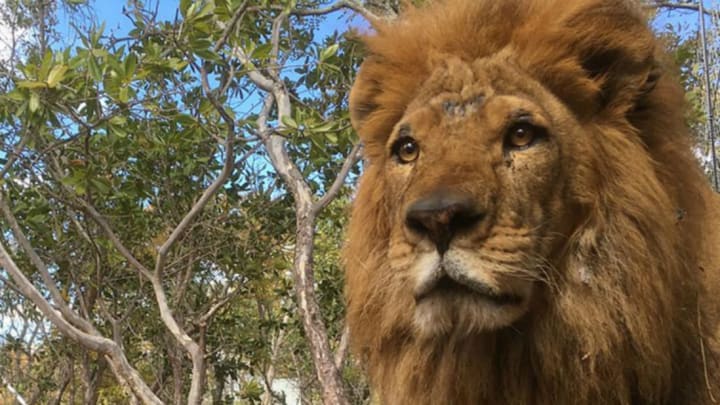At the recent Convention on International Trade in Endangered Species (CITES), nine countries from west and central Africa proposed reclassifying African lions as needing the highest level of protection. Instead, the 182 countries in attendance at the 17th Conference of the Parties reached a “compromise” that will allow continued international trade in lion bones and other parts.
The proposed ruling would have changed the listing of African lions (Panthera leo) from Appendix II to Appendix I, the highest protection possible. Animals in Appendix I—including Asian lions—are considered “threatened with extinction,” and it’s illegal to buy and sell them.
Such a ban can’t come soon enough for African lions, which are protected under the Endangered Species Act. But it’s not just cats in the wild that need protecting; the bones and skins of lions in circuses, breeding facilities, and private reserves are sought after too. So conservationists proposed a total ban, one that would extend protection to both wild and captive-bred lions. Before the conference, organizations like Animal Defenders International enlisted celebrities to champion their cause.
Even Ricky Gervais took it seriously. “The survival of the African lion hangs in the balance,” he said in a statement. “We must stop blood-thirsty hunters from decimating our wildlife for a barbaric adrenaline rush or trophy piece to show off to their mates.”
But the issue is a complicated one: Trophy hunting, ecotourism, and trade in animal parts are enormous money-makers in some African countries, which means that governments aren't easily swayed.
Still, the lions’ danger was not written off altogether. Instead, conference attendees reached a compromise: African lions will stay Appendix II. There will be a zero export quota for commercial trade in lion bones, bone pieces, products, claws, skeletons, skulls, and teeth (but not skins)—except in South Africa. It will be legal to trade in unlimited quantities of all these items as long as they come from captive-bred lions.
In response to public outcry, one representative from the European Union (which helped finalize the arrangement) told The Guardian, “It is the nature of compromise that not everyone gets what they want."
The CITES delegate from Zimbabwe—former home of Cecil the lion—argued that hunting lions is necessary for their survival. “The coexistence of people and lions can only be protected by putting a value on lions,” he said in The Guardian, “through eco-tourism and sport hunting, with the money ploughed back into conservation.”
On the other side, Colman O’Criodain, a wildlife trade specialist for the World Wildlife Fund, told The Guardian, “WWF believes that, as with the trade of parts of captive-bred tigers, the trade in bone from captive-bred lion keeps demand for big cat bone alive, and complicates enforcement efforts.”
Jan Creamer, president of Animal Defenders International, agreed. “Countries not currently trading in lion bones will now want to join the trade,” she said in a statement. “To allow this beautiful animal to disappear from the wild would be a tragedy for us all, so we must not give up.”
Know of something you think we should cover? Email us at tips@mentalfloss.com.
